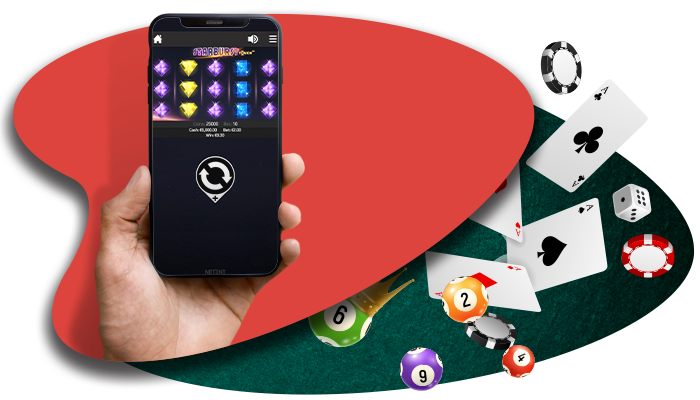
When you plunge into Blazing Hot, you feel the draw of nostalgia mixed with the thrill of chance. You’re captivated with well-known fruit icons and simple mechanics that maintain the suspense intact in every spin. The graphics are a delightful mix of retro charm and clear clarity, ensuring you’re optically captivated. But can luck alone lead you to the jackpot, or is there a strategy hidden within its tempting simplicity? Sizzling Hot Mobile
Key Points
- Sizzling Hot captivates with a nostalgic arcade atmosphere featuring classic symbols like cherries, bars, and lucky sevens.
- The game effortlessly combines strategy with chance, engaging players in anticipation with each spin.
- High-definition graphics and traditional-modern aesthetics boost the visual excitement of the gameplay.
- Mastery requires strategic betting, understanding payout ratios, and identifying winning reel combinations.
- Gameplay marries thrill and nostalgia, honoring minimalism and the exhilarating pursuit of wins.
A Plunge Into the Classic Slot Experience
When you immerse yourself in the universe of classic slots, it’s like stepping into a nostalgic arcade, where simplicity encounters thrill. As you engage with these games, the spinning reels captivate you with their rhythmic dance.
You’re immediately taken to a domain where classic symbols like cherries, bars, and lucky sevens possess a magnetic allure. They evoke a sense of freedom, stripping away modern complexities and providing you with pure, unadulterated excitement.
The lively imagery and straightforward gameplay are a celebration of minimalism that demands your attention without overwhelming you. By concentrating on iconic elements, classic slots encourage you to delight in anticipation with each spin, providing a chance to escape free from the mundane.
Immerse your senses in this experience, and witness eternal entertainment unfold.
Understanding the Game Mechanics
Although mastering the mechanics of classic slots might seem straightforward, a deeper exploration reveals a fascinating blend of strategy and chance. You’ll find that the allure resides not just in spinning reels, but in tactically considering reel combinations and their possible outcomes.
With each spin, you face the unpredictable nature of chance, gently shaping your path towards freedom with every measured risk.
Examine those payout ratios closely; they’re the heartbeat of your financial prospects, dictating how much you can gain. Interact with the slot’s rhythm, noting patterns and slight nuances in the way reels line up.
Equip yourself by understanding how specific combinations increase your chances. Immerse yourself in pitchbook.com the game’s mechanics—they’re your key to playing with both purpose and freedom.
Graphics and Design: A Feast for the Eyes
In the vibrant domain of Sizzling Hot Slot, the graphics and design aren’t just visual treats—they’re essential to the gaming experience. You’ll find the visual aesthetics vivid and captivating, pulling you into a realm where traditional meets contemporary. Thematic elements rooted in classic slots rejuvenate old-school charm with a modern twist.

The fruit symbols—cherries, lemons, and more—shine with crystal-clear clarity, each spin a delight for your eyes.
This isn’t just an ordinary game; it’s an immersion into a vivid universe enticing you to feel unshackled and free. Each element is meticulously crafted, ensuring every spin radiates excitement and energy.
As you traverse this visual feast, observe how design choices shape your adventure, transforming each moment into an thrilling quest for entertainment.
Tips and Strategies for Winning
Stepping into the world of Sizzling Hot Game with a triumphant outlook involves more than just chance; it’s a blend of strategy and intelligent decisions. You’ve got to master the art of budget control, ensuring you set limits to extend your playtime and maximize fun.
Keep a keen eye on your spending, so you’re always in control of your gaming experience.
Although Sizzling Hot isn’t jam-packed with additional bonuses like others, leveraging every available opportunity can still shift the odds in your favor.
Focus on comprehending the game’s details and modifying your bets accordingly. By doing so, you release yourself from the caprices of luck, turning every spin into a strategic action toward success.
Embracing the Thrill and Nostalgia
Every spin on the Sizzling Hot Slot machine serves up a enjoyable blend of thrill and reminiscence that captures the essence of traditional play.
Fond remembrances flood in as the vibrant fruit symbols pop on the reels, each spin reminding you of easier, yet heart-racing times. For thrill seekers, the game’s uncertain character provides a rush of excitement; you’re not just pulling a lever, you’re chasing freedom in that unpredictable mix of luck and decision.
The uncomplicated style echoes an era where gaming’s charm lay in its simplicity rather than diversions. You’ve got the power to welcome that uncontrolled exhilaration, creating your destiny spin by spin.
In this sentimental adventure, the journey itself is the prize, releasing your spirit with every whirl.


















